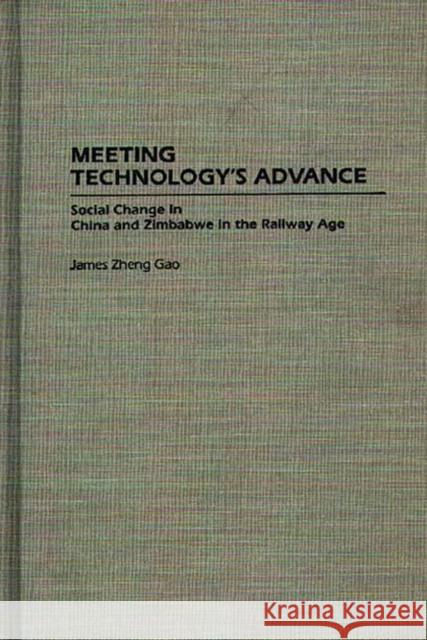Meeting Technology's Advance: Social Change in China and Zimbabwe in the Railway Age » książka
Meeting Technology's Advance: Social Change in China and Zimbabwe in the Railway Age
ISBN-13: 9780313300950 / Angielski / Twarda / 1997 / 240 str.
Meeting Technology's Advance: Social Change in China and Zimbabwe in the Railway Age
ISBN-13: 9780313300950 / Angielski / Twarda / 1997 / 240 str.
(netto: 361,86 VAT: 5%)
Najniższa cena z 30 dni: 376,07 zł
ok. 30 dni roboczych
Bez gwarancji dostawy przed świętami
Darmowa dostawa!
In this first comparative study of Chinese and Zimbabwean railway experiences, Gao examines the role played by technological progress in generating significant social change. His principal concern is with indigenous people whose efforts to meet this technological advance has been neglected or underestimated.
Gao shows how different cultural traditions, political situations, and individual interests create an attractive variety of local responses to the challenges and opportunities afforded by technology. He not only describes the final consequences of railway development, but emphasizes the dynamic process by which indigenous people first derived, then gradually lost, most of the gains from modern transport advances. In addition, Gao explores a number of permanent impacts of railways on the two areas, including demographic and structural changes, and divisions of race and class. An intriguing study for researchers and students of imperialism, and Chinese and African history.











